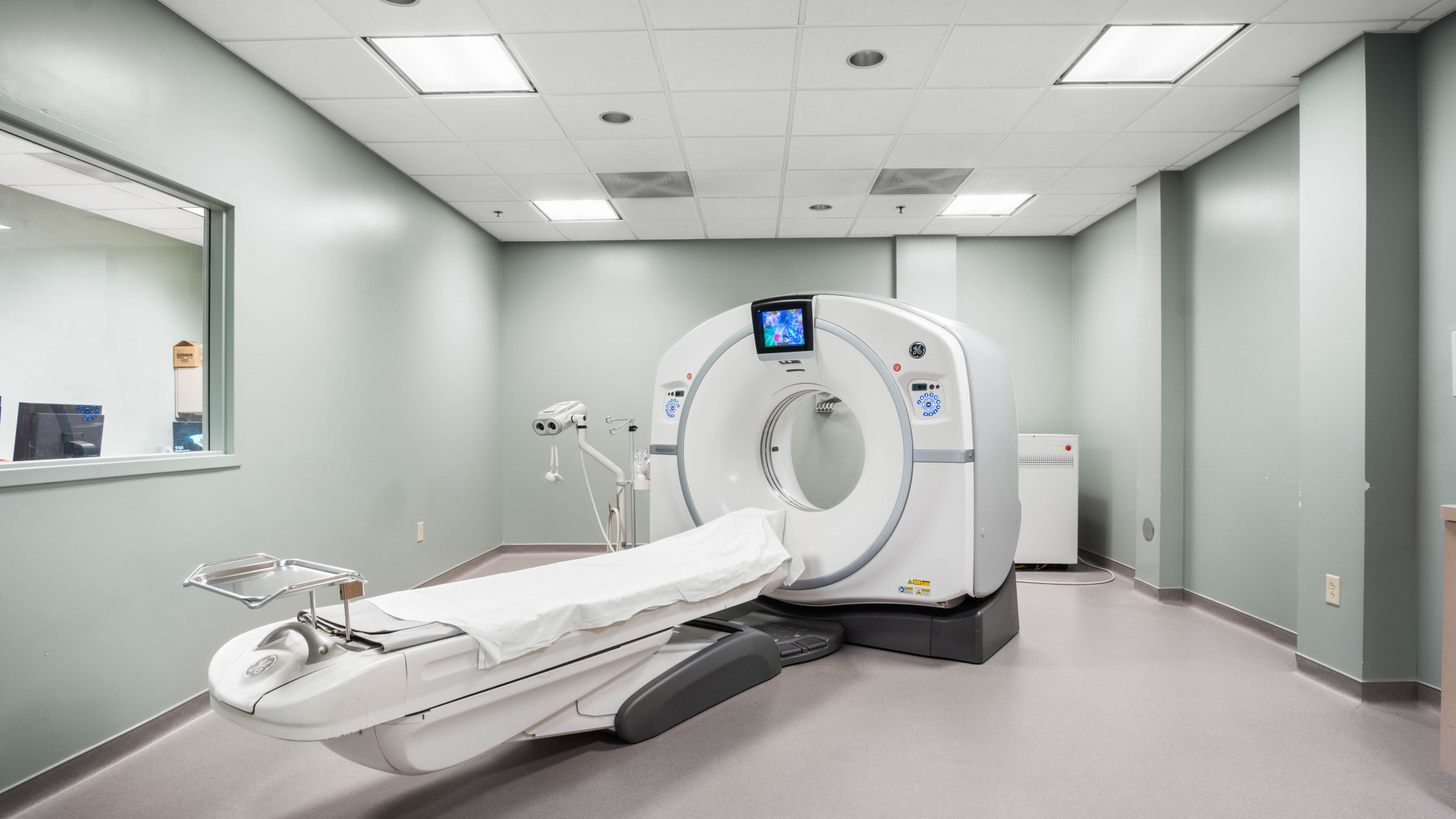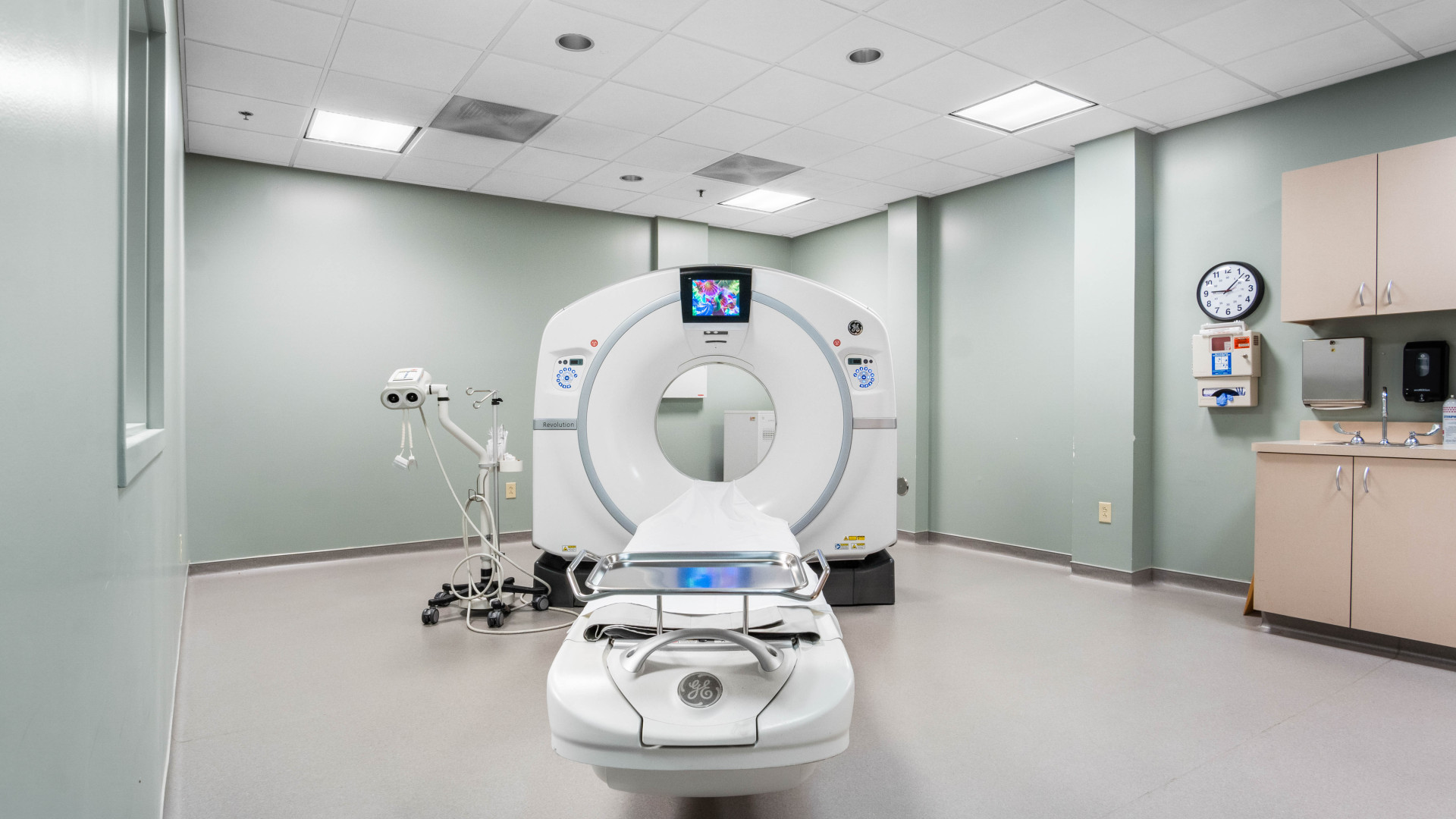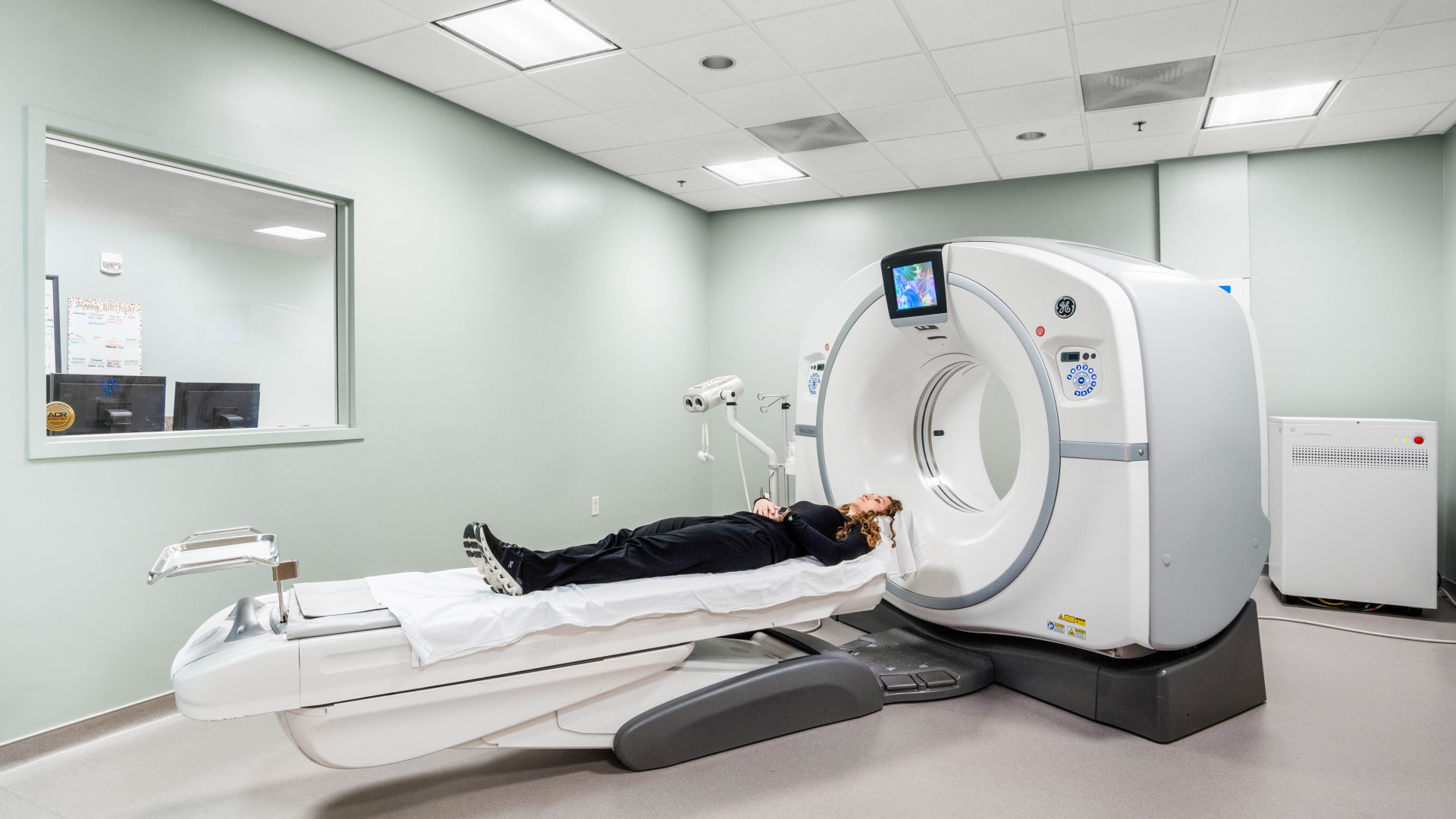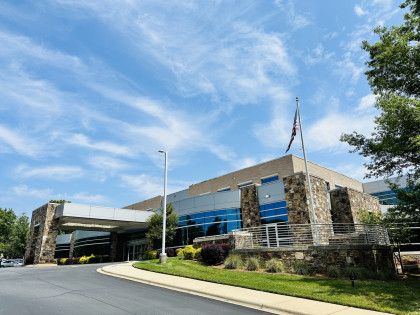CT
CT Scan
-
A CT (Computed Tomography) scan creates detailed cross-sectional
images of the body using X-ray technology and computer processing.
This advanced imaging technique is highly effective for:
- Diagnosing Conditions: CT scans are essential in diagnosing various conditions, including cancers, cardiovascular diseases, infectious diseases, trauma, and musculoskeletal disorders.
- Guiding Procedures: CT scans provide precise images that help guide various medical procedures, ensuring accuracy and safety.
- Alternative to MRI: CT scans are particularly useful for patients with surgical hardware or implants that may interfere with MRI scans.
- Convenience Patients can have their CT scans and practice appointments on the same day at one location.
- Consistency Highly skilled technologists perform every CT scan, ensuring tests are always consistent.
- Advanced Technology Our state-of-the-art CT scanners provide detailed images that help in accurate diagnosis and treatment planning.



WHAT IS A CT SCAN?
A CT (Computed Tomography) scan is an advanced imaging technique that combines X-rays and computer technology to produce cross-sectional images of the body. CT scans provide more detailed information than standard X-rays, allowing doctors to diagnose and monitor a wide range of medical conditions by capturing images of bones, organs, blood vessels, and soft tissues.
HOW DOES A PATIENT PREPARE FOR A CT SCAN?
Preparation for a CT scan depends on the area being examined. In some cases, no special preparation is required. However, you may be asked to avoid eating or drinking for a few hours before the scan, especially if a contrast dye will be used. You may need to remove jewelry, glasses, and any other metal objects that could interfere with the imaging. It's also advisable to wear loose-fitting clothing. Depending on the area being examined, you might be asked to wear a hospital gown. Always inform your doctor or CT technologist if you are pregnant or suspect you might be.
HOW IS A CT SCAN PERFORMED?
You will lie on a narrow, motorized table that slides into the center of the CT scanner, which is shaped like a large doughnut standing on its side. The technologist may ask you to hold your breath for a few seconds to prevent movement that could blur the images. As the table slowly moves through the scanner, X-ray beams rotate around your body, capturing multiple images from different angles. If a contrast dye is needed, it may be administered orally, intravenously, or rectally, depending on the type of scan. The technologist will operate the CT scanner from an adjacent room but will be able to see, hear, and speak with you throughout the procedure.
HOW LONG DOES THE TEST TAKE?
The actual scanning process typically takes only a few minutes, but the entire procedure, including preparation and positioning, can take about 15 to 30 minutes. If multiple scans are needed or if a contrast dye is used, the process may take longer.
OTHER ITEMS TO CONSIDER
Notify your physician and the technologist if you are pregnant, as CT scan radiation can be harmful to an unborn baby. Inform them if you have any metal implants, as these can interfere with the imaging process. Discuss any allergies to contrast dye or iodine and any kidney issues with your doctor before the scan.







